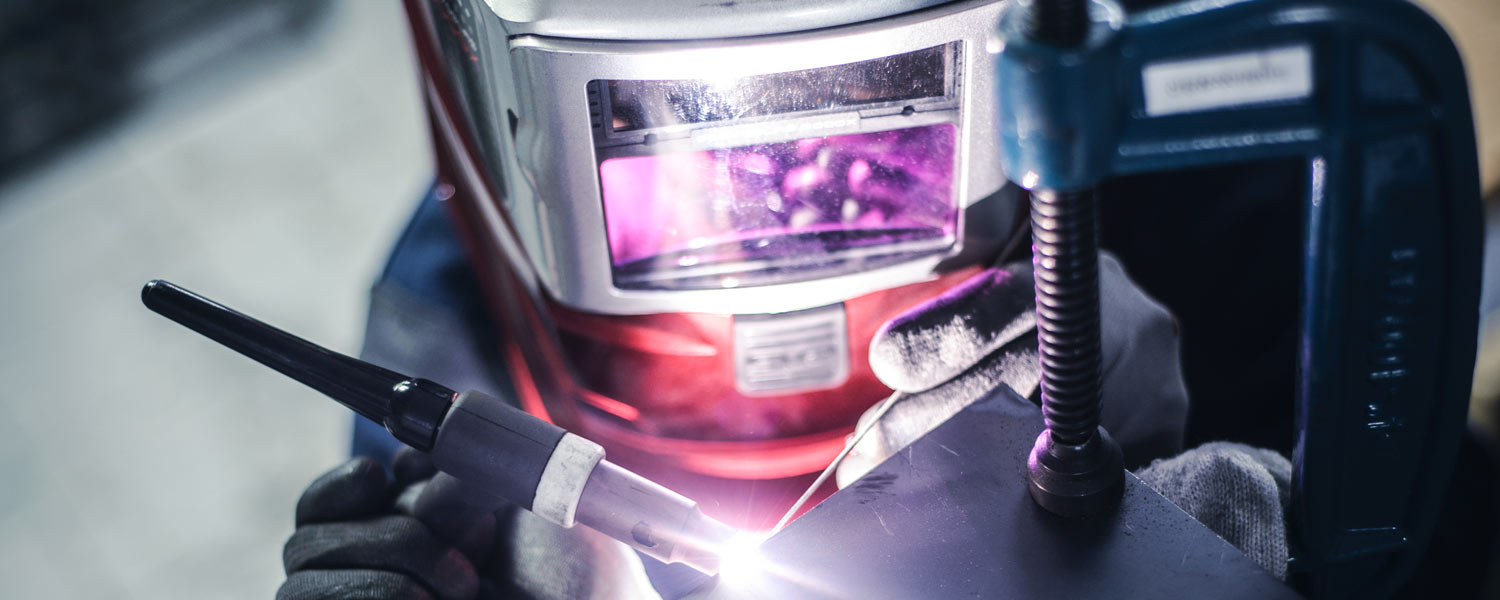Are you considering a job in the welding industry? It’s a good choice! While many individuals are focusing on digital technology as they look to the future, skilled trades are actually a better option depending upon your needs, your skills, and your goals. The welding, cutting, soldering, and brazing industries are expected to grow by about six percent from 2014 to 2024 in Pennsylvania alone according to O-NET OnLine. Additionally, the average welder makes about $18.34 per hour, or $38,150 per year (per the BLS). If you are looking for a job that offers good security, in other words, you should absolutely look into welding.
Long term employment and industry growth are both positives when you opt for a skilled trade like welding. Even more exciting is the sheer number of things you can do once you are a qualified welder! Some of these include:
- Calculating dimensions to weld.
- Studying specifications, sketches, or blueprints.
- Inspecting materials or structures to weld.
- Starting power supplies.
- Igniting torches.
- Monitoring the process to prevent overheating.
- Maintaining machinery and equipment.
In addition to the above common daily responsibilities, a qualified welder tends to work in many different industries. In fact, welders can find work doing anything from manufacturing to car racing, as well as:
- Shipbuilding
- Aerospace Applications
- Automobile Repair and Manufacturing
- Bridge and Building Construction
- Joining Pipes and Power Plants, Refineries, and Pipelines
If you are looking for an exciting and variable job that offers its employees fair compensation along with work that tests your mind as well as your physical strength, welding might be the perfect industry for you. With that said, you might not be certain exactly where to start. Let’s take a look at how you can become a qualified welder!
- Do Your Research
As with any employment option, it is important to take your time and really research the area of welding before you start taking courses. You want to make sure that you enjoy the required skills and will be able to do your job well. This is especially important given how vital welding can be to the overall soundness of buildings, pipes, and other structures. You should also take a look into the common industries in which welders tend to work.
Building Ships and Boats
One of the industries traditionally thought of when it comes to welding work is that of ship and boat construction. In fact, welders used to be one of the most common kinds of professionals seen during boat construction. As the years have passed, the United States shipbuilding industry has shrunk a bit, particularly when compared to China and South Korea. With that said, there is still room for around 12,000 welders annually.
Industrial Repair and Maintenance
This industry presents new challenges and offers new experiences to around 15,000 welders per year. Industrial repair and maintenance involves the repair and maintenance of all manner of industrial machinery, including those that are found in outdoor facilities such as oil rigs. Welders in this industry might also find themselves working overtime or working on call to ensure that even emergencies are handled quickly and accurately.
Construction
Another industry with its fair share of welders is that of construction. Welding is perhaps one of the most important parts of the entire construction process. This is especially true when the projects in question include commercial construction or civil engineering projects on a large scale, including helping to build things like:
- Utility Plants
- Dams
- Bridges
Welders working in construction help create metal parts on site. They might have to work on construction platforms or even outdoors, giving their jobs an extra bit of challenge.
Manufacturing
Manufacturing is probably the industry in the United States that hires the most welders. Around 75,000 welders work in this field, including the areas of structural and architectural metals manufacturing; mining, construction, and agriculture machinery manufacturing; and motor vehicle trailer and body manufacturing.
- Complete Your Education
Now that you understand what welders tend to do, you can make a more educated decision about whether or not you believe this path is right for you. If you want to continue onwards, then you should begin to look into the education requirements for welding. You will need to have received a high school degree or its equivalent, like a GED, to enroll in most welding career training courses. You can always reach out to the staff or faculty in charge of the programs in question if you have any question about your eligibility.
There are a wide variety of different program options when it comes to obtaining the knowledge required to become a professional welder. One of the most popular options is the program that offers comprehensive career training including both hands on experience and textbook education. This is important when it comes to skilled trades, as it is not often that either textbook information or experience alone can help adequately prepare you for work in a wide variety of industries and under a wide variety of environments.
Look for a career training option that offers to help students become experts at welding via real-life experience. You should be able to become familiar with the various kinds of welding through the program, in other words, and should graduate already understanding how to weld and under what conditions you can weld. Additionally, the right program will also offer you lectures and discussions about the welding and why certain forms are sometimes used over others. Safety procedures should also be a major part of the course, as it is vital to practice good safety while welding in order to avoid painful and costly accidents.
- Get Certified
Once you have completed your education, it is time to look into becoming certified. Note that this may be required for gainful employment, although it is possible that certain employers might help you work towards passing the exam while working. The American Welding Society (AWS) offers both good resources to help you pass the exam as well as the ability to schedule an exam in your area.
Make sure that you study hard for your exam! Do some research so that you understand the kinds of things that will be on the exam, and make sure that you carefully study them. The last thing that you want to do is to take the exam on a whim! Make sure to schedule the certification process after you complete your training, and speak with your educational facility about potential help with preparing for the exam. Many career training services offer help in the testing preparation process.
Once you take your certification exam and pass, you are ready to move on to interviews and gainful employment! These are the basic steps to follow to become a certified welder. To learn more about how you can start the process, contact Penn Commercial Business/Technical School today!



![5 Reasons to pursue a Healthcare Care-1280×720[2]](https://penncommercial.edu/wp-content/uploads/2024/10/5-Reasons-to-pursue-a-Healthcare-Care-1280x7202-1-150x150.jpg)